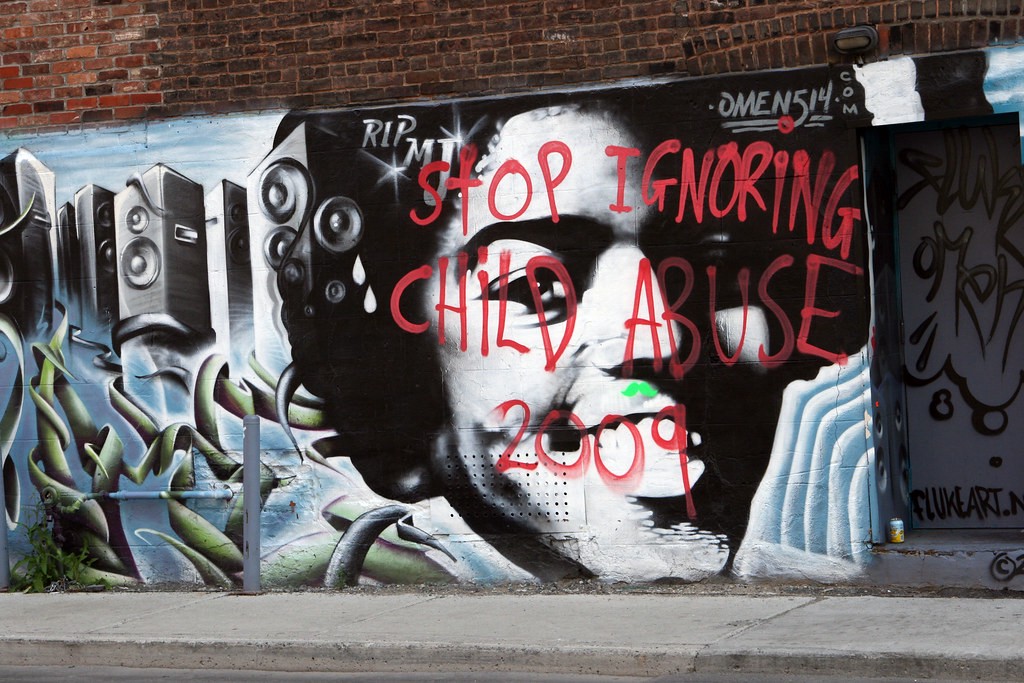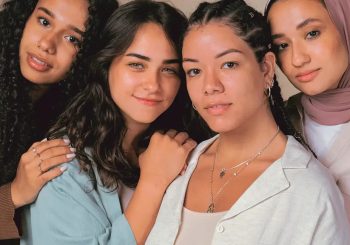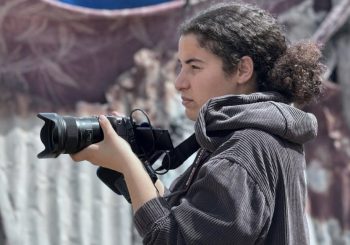Before I start, I’d like to tell you a little bit of my story as a Muslim-American woman and survivor of sexual abuse. I am a daughter of immigrants who fled Egypt nearly 30 years ago. I am also a survivor of sexual, physical, and emotional abuse. Growing up, my father molested me for years, while my mom turned the other cheek.
For years, I was my family’s sacrificial lamb. It was an unspoken rule in our household.
These days, as we all promote self-isolation to flatten the curve of the Coronavirus in American and around the world, I am reminded of the women and children who are forced to stay home with their abusers during this time. The mental anguish can be crippling and could have an impact on self-esteem, relationships, and mental health for decades to come.
For people of Middle Eastern descent — particularly Muslims — speaking out against this kind of domestic abuse is seen as betrayal because family “always comes first.”
Today, as we are all encouraged to stay home, Muslim survivors and victims in particular need to know that they are not alone, that there is light at the end of this tunnel.
My mother always lived in fear. She feared that if she acknowledged my father’s abuse towards me, that she would inevitably have to leave him and support three kids on her own. In order to validate her fear and lack of action, she repeatedly called me an “ingrate, an ungrateful child who didn’t appreciate all the sacrifices that her immigrant parents made over the years.”
As a result, I believed it too. I created my own self-quarantine bubble.
I couldn’t speak out to the authorities about my father’s sexual abuse, because I didn’t want to get him in trouble or force my immigrant mother to get a job and raise three kids on her own. I was a manipulated child in my own world of self-isolation. I absorbed my mother’s fear and narcissism like a sponge, as if it were my own.
From the ages of 13–16 years old, I learned how to push a grown man’s body off of mine in order to avoid being raped or molested. Not only that, I had to withstand his scathing sexual harassment everyday about my breasts, my ass, or my body in my own home. A body that he said he wasn’t allowed to enjoy, “a body that would only become another man’s property.”
Those words would pierce through my ears and heart for years after I left home at the age of 17. As a Muslim teen, I often wondered if my father was making sexual advances towards me to test my honor. At least that’s what I told myself to ease my own pain. It was my own coping mechanism to be able to withstand that pain.
I sometimes also wondered if God would be angry with me if I spoke out against my family. I lived as if it was my duty to protect my family.
I forgot that I was a child, not a parent.
My Own Escape
As a 32-year-old woman today, I can proudly say that it took me years of therapy and healing to rewire my brain in order to understand what happened to me actually had nothing to do with me, or with God for that matter.
My mother was overburdened by a marriage that she couldn’t walk away from, no matter how much this toxic living situation was hurting her children, or her only daughter. This is because she grew up in a society that constantly told her that women can’t make it on their own, or that women who venture off are “sluts.” She also repeatedly told herself that the men in her life must take care of her. This was how she grew up. This happened to me in America. In fact, it happened to me in a little Southern town called Elgin, South Carolina.
Growing up, my only reprieve was my part-time restaurant job and school. I was held in isolation anyway by my strict parents. Granted, I was the only Muslim-American teenager in a predominantly white town, but I was blessed to live in a peaceful community where I could escape the violence inside my own home. Unlike teens my age, I loved going to school, because it was an escape. It was a place where I excelled, and found compassion in the hearts of friends and teachers. It is a place that helped shape my Muslim-American identity.
My education was also a ticket out of my abusive family’s home.
Today, I am thinking of the little girls, children of immigrants in the United States and around the world today facing this kind of manipulation, and unable to speak up or escape their abusive environments during this time of social distancing.
I am thinking of how many Muslim women, boys, or girls, are facing such abuse today and are unable to speak during isolation as we all attempt to flatten the curve of Coronavirus.
Take my family’s home country of Egypt as an example. At least 93 percent of children aged 1 to 14 years old have been exposed to violent practices, including psychological aggression and/or physical punishment, according to the 2014 Demographic Health Survey (DHS) in Egypt.
In many across the Middle East, women’s rights often take the back burner. But, amidst coronavirus, these rights are completely being ignored. Suad Abu-Dayyeh, a consultant for women’s rights campaigners Equality Now, recently told Reuters that governments in the region had “completely forgotten the whole issue of the violence against women aspect of coronavirus.”
Haunting Conversations
I remember in my late 20s, I asked my mother why she never properly stood up for me when my father abused me. Her answer was shocking.
She said she thought he was “just joking” with me. As horrible as that excuse was, she actually believed it because her upbringing in a patriarchal society had blurred her lines of consent.
Today, this type of fear and oblivion must not navigate how we cope with the spread of Coronavirus. This virus may be deadly, but the repercussions of abuse can have long-lasting impact on generations of men and women to come.
At 32 years-old-today, I have not forgotten about that abuse. Sometimes I even blame myself for not speaking out sooner. But, at the time, I truly never believed that I could speak out as a Muslim woman.
For other women or children in isolation feeling that they have no way out, I want you to know that there is a way out. There is help whether inside, or outside the Muslim community, and you deserve it. You are not in this alone. We are with you.






Comment (1)
[…] Coronavirus: Coping with Trauma and Abuse in Isolation is a Struggle […]